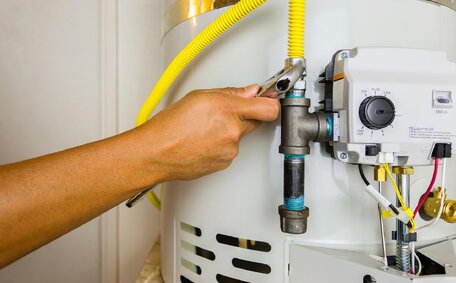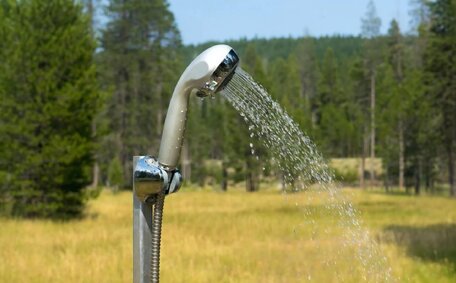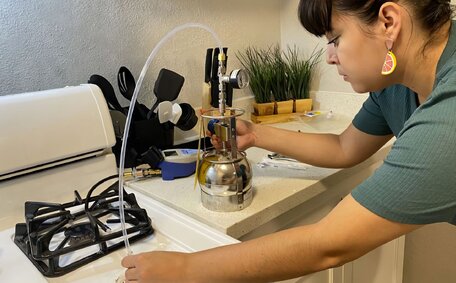Introduction to Hot Water System Inspections
Regular inspections by a licensed plumber are crucial to maintaining the efficiency and longevity of your hot water system.
A licensed plumber should perform a detailed inspection of components such as the pressure relief valve, heating elements, and water tank for any sediment or issues once every six months. They can make sure to spot early signs of wear, sediment buildup, corrosion, leaks, faulty parts, and other problems. Addressing minor repairs now prevents more costly repairs down the road.
Maintenance should include flushing the water heater every two years to remove mineral deposits caused by hard water. Replacing the anode rod once every 3-5 years helps prolong tank life span as well. Following the manufacturer’s water heater maintenance guidelines for your specific model is highly recommended.
Scheduling routine solar water heater inspections ensures your unit functions optimally. Your plumber can service your system, ensuring its efficiency for the long term.
How Often to Inspect Your Hot Water System
It is crucial to have your hot water system professionally inspected at least once a year, allowing a licensed plumber to thoroughly examine all components and identify minor issues before they necessitate major repairs.
The frequency of plumbing maintenance for your system should be determined based on the type of system you have, its age, and the manufacturer’s guidelines. For example, older units or solar hot water systems often need regular solar hot water system servicing to operate efficiently. Your solar hot water systems should have regular servicing at least every six months as well.
During servicing, plumbers inspect critical components like the electric hot water tank, heating elements, pressure relief valves, and anode rods. They assess for corrosion, sediment buildup, leaks, and inconsistent temperature or pressure readings. Necessary repairs, flushing, and anode rod replacements help maximise performance.
Neglecting routine inspections could lead to more frequent issues with your water heater over time. Issues like consistent low hot water pressure, odd noises, rust around fittings, and high energy bills can indicate it’s time to call a professional. They can evaluate problems, recommend solutions, and often prevent the requirement for a complete system replacement.
Schedule annual or biannual inspections with our licensed plumbers to maintain your water system’s integrity. Keeping up with routine maintenance protects your investment and ensures safe, consistent hot water delivery.
What to Check During a Hot Water System Inspection
When a professional plumber inspects your hot water system, they will thoroughly examine several key components to evaluate functionality and spot potential problems. This normally includes checking:
- The water tank for corrosion, leaks, cracks, or dents
- Internal heating elements and thermostat controls
- The anode rod wear and scheduling a replacement if needed
- All pipes, fittings, valves and connections for leaks or signs of wear
- The temperature and pressure relief valve to ensure proper operation
- Sediment buildup levels to determine if a flush water process is required
- For unusual noises, irregular pressure, or temperature fluctuations
- Your gas supply lines and gas water heater shutoff valves
Technicians will also clean and adjust parts like valves and sensors, ensuring a safe and efficient water supply. Reporting any drips, rumbling noises, rust spots around fittings, and drops in water temperature or pressure can alert our team to underlying problems requiring prompt repairs.
Scheduling professional hot water service inspections annually provides peace of mind that your hot water unit is in good working condition. Preventative maintenance ensures your water heater must maintain performance, efficiency, and longevity too.
Checking Temperature and Pressure Relief Valves
Checking the temperature relief valve is a critical part of any hot water system inspection. These safety components serve to relieve excessive pressure or heat buildup inside the tank, which can prevent explosion hazards.
During the plumbing maintenance inspection, the plumber will examine the physical condition of your plumbing system’s temperature pressure relief valve and lift the easing lever to ensure it still functions properly. Any corrosion, damage, or failure to open can compromise safety. The drain valve pipe should also be checked for blockages or kinks that could obstruct relief discharge.
If the TPR valve fails the testing process, does not lift, or allows water to continuously leak, replacing it is crucial. Prolonged drips from the valve can signal issues with excessive pressure, faulty controls, or a deteriorating tank lining too. Letting defective relief valves go unchanged risks catastrophic failure under pressure.
While checking this equipment, technicians will also use gauges to test temperature and pressure levels against manufacturer benchmarks. Unusually high or irregular temperature pressure results warrant troubleshooting the heating elements, thermostat, or other components influencing these readings.
Inspecting for Leaks, Corrosion and Wear
During hot water system inspections, including those for your heat pump, plumbers can carefully check for potential issues such as signs of leaks, corrosion, and general wear and tear. Issues like tree roots invading pipes can cause compromise to system integrity over time, leading to a drop in efficiency, performance problems, and potential safety hazards if left unchecked.
Technicians visually inspect your pipes, joints, valves and the electric water tank connections for water staining or tiny drips that may indicate small leaks. You can avoid corrosion in the form of rust, mineral deposits, pitting, and flaking metal near the main sewer line, an important warning sign. Areas around fittings and temperature relief valves can leak and tend to be common corrosion hot spots.
Venturing inside the system, ensuring your hot heating elements and electrical controls continue functioning properly is key too. Sediment accumulation, odd noises, and irregular temperature or pressure readings help identify parts wearing down and needing replacement.
By spotting subtle leak points, areas of corrosion, and ensuring to check your water heater components showing their age early on, plumbers can take corrective actions to keep systems operating safely and efficiently. Regular inspections paired with strategic component replacements where required enables your hot water system to deliver reliable performance for your home year after year.
Replacing the Anode Rod
During inspections, technicians check out when your anode rod’s condition by removing it and looking for significant thinning or corrosion. A rod that’s mostly eaten away no longer provides adequate corrosion protection and requires replacement. Allowing all the metal to completely corrode can lead to inner tank wall corrosion and eventual failure.
Replacing deteriorated rods restores your tank’s first line of defence against corrosion. This small upgrade during scheduled maintenance helps ensure maximum performance and longevity of your valuable investment.
Signs Your System Needs Repairs or Replacement
Several warning signs indicate your hot water system may need professional repairs or replacement. Significant drops in water pressure, bursts of rumbling noises, and inconsistent output temperatures warrant inspection. Rust accumulations, corroded fittings, and substantial sediment buildup also signify wear and tear.
If your energy bills suddenly spike despite minimal usage changes, it’s possible your hot water heaters’ elements need replacing. Drips from valves and fittings or new moisture stains around the tank suggest small leaks may be present too. Systems over 10 years old often begin deteriorating despite proper maintenance.
Attempting DIY fixes on your hot water heater, like when I get my hot water system to adjust pressure, risks further damage and voids warranties. Know about professional care, our licenced technicians can accurately assess issues and recommend affordable solutions tailored to your make and model. Whether repairs, upgrades, or new installations, proactive maintenance saves thousands over emergency replacements down the road.
When to Call a Professional Plumber
Many understand the importance of hiring a professional for plumbing inspections and maintenance in situations such as:
- Should your system require general preventative maintenance
- If you notice decreased hot tap water pressure or temperature
- If the system makes abnormal noises during operation
- When the energy bills for your hot water increase unexpectedly
- When there are visible leaks, moisture, or rust around pipes and fittings
- If relief valves are dripping or don’t lift properly when tested
- To replace the anode rod every five years
At Blakehurst Plumbing, our local licensed technicians specialise in hot water system repairs, maintenance, and installation across all models. We are available for 24/7 emergency plumbing services.
Book your inspection or request repairs for your hot water system by emailing us at [email protected] or calling us at 1300 349 338. Preventative maintenance can lead to significant savings by averting emergency replacements.
The Importance of Regular Maintenance
Regular maintenance is essential to save costs and ensure optimal performance and longevity of your hot water system. Industry statistics show that preventative maintenance and repairs cost around 25-30% less than emergency callouts and replacements when catastrophic failures occur.
Beyond cost savings, routinely inspecting your solar water heating components including cold water delivery proactively identifies issues before they worsen, reducing safety hazards. Inspections identify crucial components such as heating elements, anode rods, and temperature/pressure relief valves during annual or biannual appointments.
Strategic part replacements and maintenance tasks like tank flushes preserve your system’s efficiency, delaying the need for a full upgrade.Ignoring minor issues can lead to increased expenses and early unit failure. Allow our licenced team to keep your hot water system running safely and affordably.
Conclusion
Professional inspections and maintenance are key to the safe and efficient provision of hot water. Experts advise annual check-ups to detect and address minor issues before they require significant repairs or replacements.
During scheduled visits, our licensed technicians meticulously inspect critical components such as heating elements, anode rods, valves, and safety controls to prevent any issues. We also check for leaks, corrosion, unusual noises, and other warning signs when problems are arising.
Contact Blakehurst Plumbing today at 1300 349 338 to request our hot water system maintenance services. Investing a little now in preventative care saves thousands over emergency calls later on.






